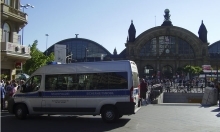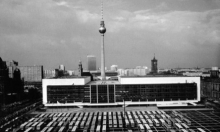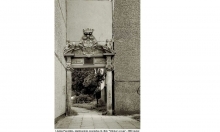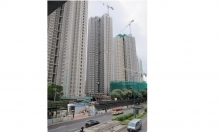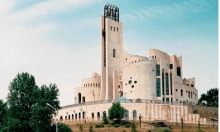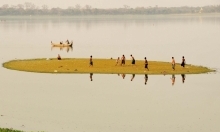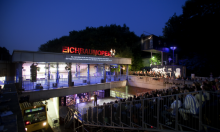Place. Anthropology of space
The eighth session of Architecture [discussion] Fund presents anthropological approach to architecture and invites to research architecture as a social phenomenon drawing attention to its social background, functioning, and influences. First of all architecture is modeling of the space, and the space is the essential dimension of experience, therefore it is important to understand, what particular physical, sensual, historical or social qualities we are surrounded by, and to figure out, what kind of behavior, movement, feeling and thinking they suggest us. Since Descartes “the space” in Western culture has been understood as an abstract idea, as a tensile void that is to be fulfilled with different physical and social parameters. In reality such kind of abstraction doesn’t exist, as every real space is not detachable from numerous specific features. In recent decades along with criticism of modernist thought arguing against the abstract and universal notion of architecture as form and function, the term “place” became more and more prominent in contemporary space studies. “The place” is a concrete, local, colorful and active space, which restricts or encourages, controls or enables, inspires or oppresses; it can be loud, comforting, joyful or silent.
Interest in the social role of space encouraged social science disciplines to engage in architectural studies. Anthropology of space tries to answer, how one or another place is constructed and why it acts in one way or another. Lecturers invited to this session of discussions approach architectural places from different perspectives, investigating social diversity, geography of crime, children’s mobility, sociability of architecture and imaginative architecture in photography.
Curated by Ūla Tornau and Vita Petrušauskaitė
MODERN HERITAGES
Though terms MODERN and HERITAGE have cardinally opposite meanings (one takes a powerful step towards the future, while the other cannot stop mining the past) in today’s society they paradoxically do not form an oxymoron, but friendly co-exist together, and this symbiosis is getting stronger.
Todays it is harder to tell not what the heritage is, but what it is not, as the concept of heritage is menacingly expanding, and not because of surplus of “raw stock”, but because of mass idealization of the past.
“MODERN HERITAGES” aims at discussing contemporary issues of heritage of the modern architecture as well as contemporary practices in the field of our architectural heritage. The discussion will target at the intellectual agenda of the heritage of the modern architecture, socialist modernism, mechanism of heritage materialisation, and conceptualisation and realisation of modern heritage practices.
Curators - Lukas Rekevičius and Marija Dremaitė
The talks are held every Thursday, 8.00 p.m. at the National Art Gallery (NDG), Konstitucijos av. 22, Vilnius. Entrance is free of charge.
Process
How, why, where and what inspires the birth of architecture?
The process of creating architecture is often forgotten and undervaluated, however, it is the key ingredient in the mix of architecture responding to provocations of NOW.
Creative process is as diverse as the number of creators: some architects like drafting others prioritize analyzing; there are rationalists and functionalists. None of the paths is the only right one for everyone, and all paths are in some way true to someone. How do the first ideas emerge? Is architecture the result of an author, or compilated synthesis of ideas from the whole team? What is more important – architectural scenario or the looks of architecture? Love the context or f**ck the context? Which method is of higher value – creative impulse of the moment, or coherent and cold-minded search of the balance? Does the worth lie only in perfect realization? What is the process between the first sketch and the final result and what else it may trigger?
Meeting our different philosophers of architecture might answer a few questions, but not necessarily so.
The talks are held every Thursday, 8.00 p.m. at the National Art Gallery (NDG), Konstitucijos av. 22, Vilnius. Entrance is free of charge.

